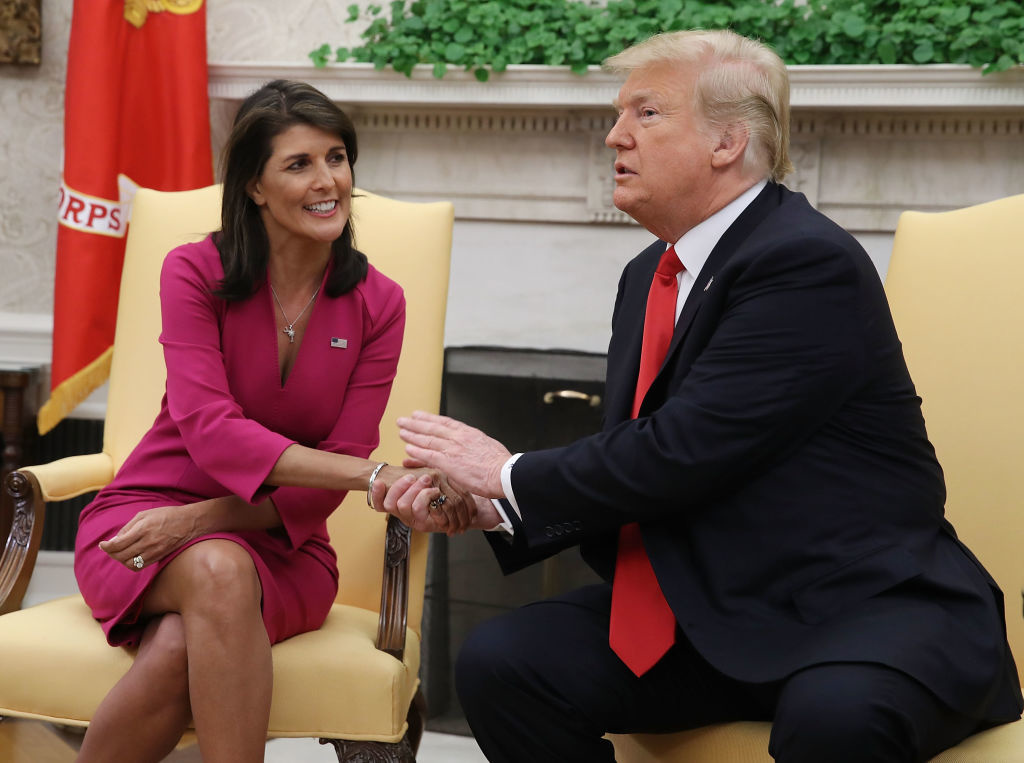election
Recent American presidents have all faced a crisis of legitimacy in a trend that threatens the health of our democracy.
Haley, who’s at times been both a supporter and critic of the president, reportedly “shocked” White House officials by announcing the end of her two-year tenure as a U.N. ambassador.
In 2017, conflict was stronger between red and blue than it was between black and white.
KGB-era “active measures” are still being used by Russian intelligence agencies today, according to experts.
For the last two years the volume has risen on populist voices, culminating in a victory for President Trump. The day after his election, this is how “rude” New Yorkers treated one Muslim-American woman.
▸
2 min
—
with
Astrophysicist and science educator Neil deGrasse Tyson reveals if he’d run for President and what he would do if elected.
What should have killed Trump’s political career, only made him stronger. Matt Taibbi marvels at Trump’s immunity to scandal and baffling resilience to normal media strategies.
▸
3 min
—
with
Journalists were once outsiders looking in, says Gay Talese, but today their proximity to Washington makes them myopic; they’d be wiser to disperse and keep their eyes on the horizon.
▸
6 min
—
with
If we could jump 50 years into the future, what will our world look like? Flying cars? Hologram phones? Bill Nye sees two technological paths ahead – and we’re in the fork between them at this very moment.
▸
4 min
—
with
A careful analysis by two economists finds that phony journalism had little influence on voters and the outcome of the election.
The work of Kremlin-approved philosopher Alexander Dugin provides key insights on the longterm strategy behind Russian hacks of the American elections.
If hate is a virus, the U.S. has got it bad. Oliver Luckett presents a fascinating perspective on how the 2016 election divided America, how social media mimics biology, and how the U.S. can start to rebuild.
▸
10 min
—
with
Jon Stewart shares his thoughts on many issues during a recent talk with the New York Times.
“We love, as a culture, to attack messengers when the message is something that makes us feel uncomfortable,” says journalist Wesley Lowery.
▸
3 min
—
with
NSA whistleblower Edward Snowden told an audience we should not be “putting too much faith or fear elected officials.” This includes Donald Trump.
The history and reasoning behind the much-maligned Electoral College.
It’s not by burning people’s pictures and wearing the flag as a cape, but by understanding ourselves better, and understanding the person beside you.
Three Ways America Can Be United Again – Through Decision-Making
3 Ways We Can Make America Great Again – Through Decision Making
Looks Like We’re Making America Great Again. Here Are 3 Ways to Contribute.
Malcolm Gladwell does a post-mortem of the U.S. presidential election, speaking to issues of sexism and moral licensing, and makes a bold prediction.
Through a series of election-related email dumps, WikiLeaks played a major role in the U.S. elections.


















